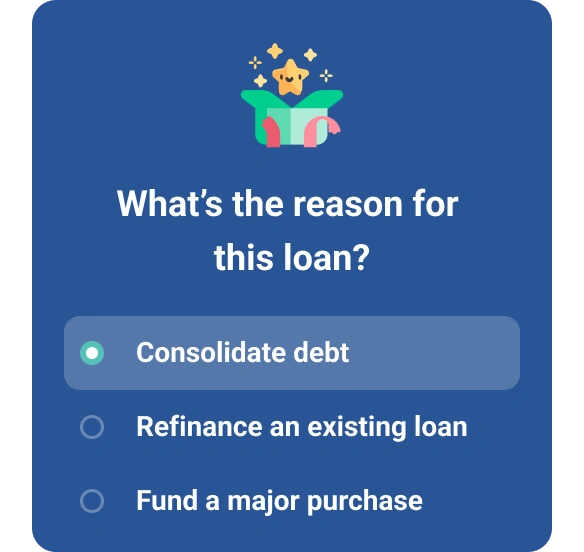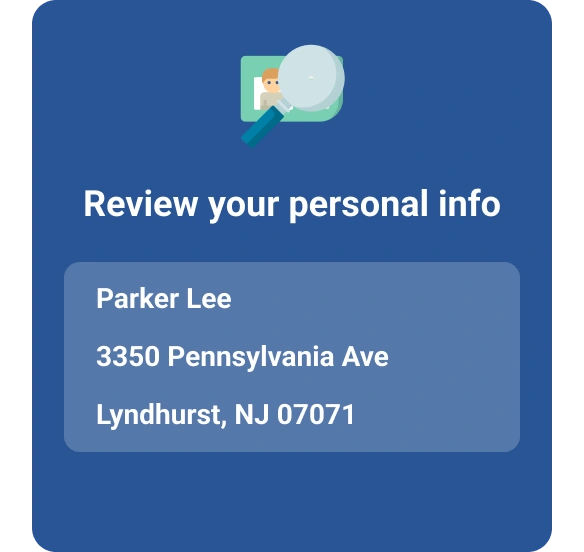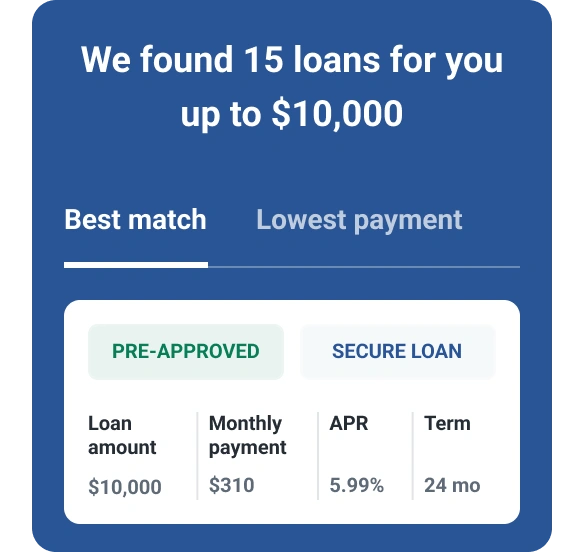Emergency Loans: Where to Get the Best Ones

If the continuing economic uncertainty of the COVID-19 crisis has you worried about possible financial hardship, there are several options that can help.
Read on to learn about solutions you can use to help meet your financial obligations when money is—or could become—tight. From government relief and creditor assistance to savings or an emergency loan, peace of mind may be closer than you think.
Consider All Your Options
Whether brought on by a national health crisis or something else entirely, financial concerns may have you wondering how you're going to keep up with all your bills.
The good news is there are several solutions that can help. Before taking any steps, consider all your options and resources to determine the best way to cover your expenses. Here are some to consider:
- State or federal government relief: States and the federal government continue to offer COVID-19 relief measures to help consumers who may have lost their job, had their hours reduced, need to take sick time or are experiencing other financial hardship. The most recent provisions, enacted as part of the American Rescue Plan Act of 2021, offer a third round of stimulus payments, continued unemployment benefits and more. Look to your state governor's office, the IRS, the Consumer Financial Protection Bureau or USA.gov for more information on what assistance may be available to you. Also see How to Get Credit Counseling and Financial Assistance.
- An emergency fund: If you've saved up an emergency fund, now's the time to use it. Use the money to cover as many necessary expenses as you can rather than paying fees or interest to borrow money.
- Your bank or credit union: While many banks don't offer personal loans, it doesn't hurt to ask your bank or credit union if there are any borrowing options available. You may be able to get the money quickly deposited into your account rather than waiting for a transfer.
- Assistance from your creditors: If you don't have enough money to pay all your bills, contact your creditors and ask about hardship options. They may be able to temporarily reduce your interest rate or payment amount, or pause your payments. Lenders may also be able to place your loans in deferment or forbearance. You do not have to make loan payments when a loan is in deferment or forbearance, and the lender will not report late payments to the credit bureaus.
- Friends and family: Mixing personal relationships and finances doesn't always turn out great, but it's something to consider. When borrowing money from family, be sure to set clear expectations, and even write up a contract with the terms you both agree on.
- Credit cards: While credit cards tend to have higher interest rates, you may have a card (or be able to get a card) with a promotional 0% annual percentage rate offer. You can avoid interest by using the card and paying off the balance before the promotional rate ends, which could make this a better option than taking out a loan. If you're considering a credit card, find out which offers you may qualify for using Experian's card comparison tool.
- Credit card cash advances: Using your credit card to get a cash advance may be an option if you're making a purchase where credit cards aren't accepted. However, you may have to pay a fee and the cash advance will likely carry a high interest rate, even if your card offers a promotional rate on purchases. Because of the fees and rates, a cash advance may be a more expensive option than other types of loans.
- Emergency loans: While "emergency loan" is a description of how you plan to use the money rather than a specific type of loan, you'll often see unsecured personal loans described as such. The number of personal loans on the market has grown substantially in recent years, so if you're considering one, learn more about what is involved and which loans might work for your situation (more on this below).
What You Need to Know if You're Considering an Emergency Loan
An unsecured personal loan does not require you to provide collateral to receive the funds. Lenders typically let you use personal loan funds for almost anything, which means they can help during a variety of emergency situations.
There are a few additional fine points to know as you look for a personal loan:
- Your state of residence can be important. Some lenders don't offer loans in certain states. The minimum and maximum loan amounts and fees can also depend on what state you reside in.
- Interest rates can vary widely. Lenders often have large interest rate ranges, and you may wind up getting offered a rate that's much higher than what you'd pay on a credit card. This is the case for pay day loans, and same day loans.
- There's no guaranteed loan amount. While lenders may offer "up to" a certain amount, that doesn't mean you'll get approved for the entire amount you request.
- Look closely at the fees. Many lenders advertise that they don't charge application or prepayment fees. But often you'll still need to pay an origination fee.
- Funding speed can vary. You may be able to get funds in your account within one or two business days. However, the timing can depend on when you submit your application, how long it takes to verify your information and the bank where you want the money deposited.
- Find a reputable lender. All loans are a contractual commitment, so be mindful of the fine print, payment terms and interest rates. Make sure to research and pay attention to consumer reviews of loan providers. This could help you avoid predatory lenders or unfavorable terms.
If you've considered your situation and believe an emergency loan is the right solution for you, the four online lenders noted above could offer quick unsecured personal loans with potentially low interest rates.
Bottom Line
Wading through all the options during a financially uncertain time can be difficult, but you do have options when you need cash in a hurry. If you think an emergency loan might be your best option, you can use a tool like Experian's loan comparison tool to quickly compare lenders and find out if you prequalify.
Need a personal loan?
Whether you're looking to eliminate debt or access cash fast, compare personal loan offers matched to your credit profile.
Start now for freeAbout the author
Louis DeNicola is freelance personal finance and credit writer who works with Fortune 500 financial services firms, FinTech startups, and non-profits to teach people about money and credit. His clients include BlueVine, Discover, LendingTree, Money Management International, U.S News and Wirecutter.
Read more from Louis

